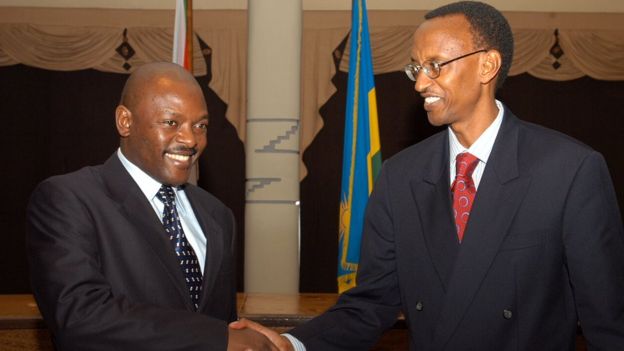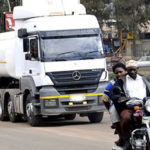Heads of two leading travel agencies in Kigali say they have sustained major financial losses due to the border closure between Burundi and Rwanda.
In late July, the Burundi government suspended food exports to Rwanda – allegedly due to drought – and Burundian security officers have since prevented passengers’ buses from crossing the border. Relations between Burundi and Rwanda have soured since Burundi’s President Pierre Nkurunziza, who was elected for a controversial third term in July 2015, accused Rwanda of supporting rebels in Burundi.
Volcano Express and Yahoo Car Express, which carry passengers between Burundi and Rwanda, and Uganda and Kenya, have seen a sharp decline in business. Movement is virtually at a standstill; there are no passengers, some bus routes in Burundi have stopped, and businesses are no longer making cross border transactions.
Olivier Nizeyimana, the Managing Director of Volcano Express, said some of his buses registered in Burundi are simply waiting inside the country, doing nothing. “Our buses are locked there. Some escaped by other borders, but they were empty. The government should respect our business, as we are paying taxes”, he says.
On July 30th, Burundian Vice President, Joseph Butore ordered the Police to prevent all traders from taking products into Rwanda. Previously, many passengers were businessmen from the region, as well as relatives of families that have fled to Rwanda and Uganda due to crisis.
No more fruits on Rwandan market
Since the closure of border, Rwanda is experiencing significant shortages of food imported from Burundi, including mangoes, oranges, palm oil and fish.
In Kigali, some sellers have quit the job. “No mangoes, so I am now interested in avocados. We get mangoes at double the price, from Tanzania, Uganda and Kenya. Customers don’t like them, and they are very expensive. Some colleagues shifted to vegetables, others quit”, says a young man in the City Market, Kigali.
Rwanda has always imported mangoes from Uganda, but customers preferred Burundian mangoes based on their flavour.
Previously, RWF 2,000 bought a kilo of high quality mangoes, while today you need RWF2,500 to get a kilo of poor quality mangoes.
A lady from Kimisagara market in Kigali used to sell ten 20 twenty litre jerrycans per week, but today only sells one. “My customers no longer eat Sombe (cassava leaves) because the palm oil [they use to cook it] from Tanzania is different to the one from Burundi they were familiar with”.
A twenty litre jerrycan of amamesa (palm oil) from Burundi used to cost RWF 15,000 francs wholesale, and sold for RWF2,000 per litre. Now from Tanzania, a jerrycan costs RWF25,000 wholesale, and sells for RWF 3,000 a litre.
Francois Kanimba, Minister of Commerce in Rwanda, said in a press conference that this will have negative impacts on the economies of both countries. Already, Rwandan exports declined 40% last year as a result of Burundi crisis. Rwanda Development Board had opened markets in Burundi to sell produce including beans, maize, milk, potatoes. The crisis has, however, negatively impacted Burundi’s purchasing power.
Minister Kanimba condemned the Burundian border restrictions, warning that the country will face consequences. “This is illegal. EAC (East African Community) should impose sanctions on Burundi, which is among its members”, he said.
When Burundian Vice President, Joseph Butore, ordered the Police to stop all exports to Rwanda, he said he considered Rwanda an opponent. A month later, on August 31st, the Rwandan army shot dead two Burundians at Ruhwa border, for crossing the border illegally overnight.
Since April 2015, when President Nkurunziza began his campaign to win a 3rd term, 270,000 Burundians have fled the country. Mahama camp in Rwanda’s Eastern province accommodates 50,000 people, while around 30,000 more live in urban areas.








